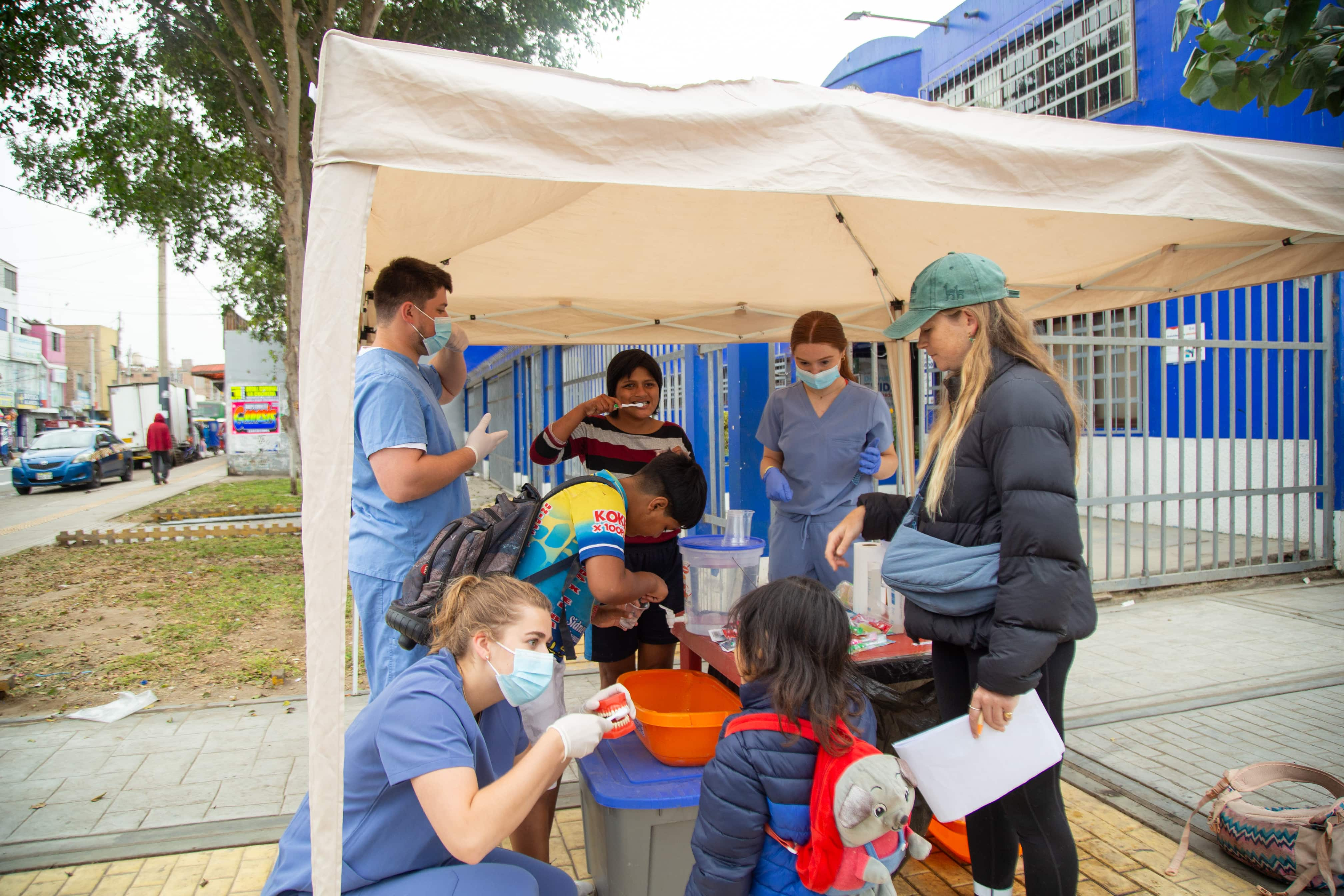
4 Key Lessons Students Learn from Providing Dental Care Abroad
Volunteering and assisting with dental care abroad offers young people the unique opportunity to make a real difference in underserved communities while learning important lessons that shape their personal and professional growth. Through programs like Smiles Movement, students can gain hands-on experience in global healthcare, while also becoming more compassionate and skilled healthcare providers. Here are four key lessons students learn from providing dental care abroad.
.jpg)
1. The Power of Preventive Care
One of the first lessons students learn when assisting with dental care abroad is how essential preventive care is. Many underserved communities have limited access to regular dental services, resulting in higher rates of preventable oral health issues like cavities and gum disease. Students quickly realize the importance of teaching patients about proper oral hygiene practices such as brushing, flossing, and using fluoride.
Volunteering in these communities provides a deeper understanding of how preventive measures can reduce long-term oral health problems and the essential role of education in maintaining good oral health. Students gain hands-on experience in educating patients, empowering them to take control of their oral health.
2. Cultural Competency and Communication Skills
When providing dental care abroad, students often encounter patients from diverse cultural backgrounds. Learning to communicate effectively across language barriers is a valuable skill they develop during their volunteer experience. They also gain insights into how cultural attitudes toward health and wellness can affect oral care practices.
By working closely with local healthcare teams and communities, students improve their cultural competency and gain a better understanding of how to adapt their approach to meet the needs of diverse populations. This experience is invaluable in preparing students for future careers in healthcare, where cultural sensitivity and understanding are key.

3. Teamwork and Collaboration
Another key lesson from assisting with dental care abroad is the importance of teamwork and collaboration. Students often work alongside local dental professionals, other volunteers, and healthcare workers from various backgrounds. This collaborative environment helps students develop essential skills like teamwork, problem-solving, and adaptability.
In many cases, volunteers must find creative solutions to deliver care, especially when resources are limited. This teaches students how to work effectively under pressure and use available resources to provide the best care possible, building skills that will serve them well in their future careers.
.jpg)
4. Empathy and Compassion
One of the most profound lessons students gain from volunteering in dental care abroad is the development of empathy and compassion. Working in communities with limited access to dental care exposes students to the challenges that many people face due to poverty, lack of education, and healthcare inequality.
By meeting patients who have endured preventable dental issues, students begin to understand the broader social determinants of health and develop a strong sense of empathy. This experience inspires students to become advocates for healthcare equality and motivates them to pursue careers dedicated to improving access to care for underserved populations.
Assisting with dental care abroad programs is not just about providing treatment, it’s about learning, growing, and making a real impact. Students who take part in programs like Smiles Movement return home with practical skills, greater empathy, and a renewed passion for healthcare. Ready to make a difference? Join Smiles Movement and start your journey today!
To learn more about how you can join a Smiles Movement Service Learning Trip, download our free brochure to get started!
Even more, you can directly assist communities in need by becoming a monthly donor. For less than one coffee a month, you can make an impact in low-income communities by funding essential healthcare outreach and educational programs.


.jpg?width=352&name=b17ebfe9-0d62-4a1e-8cd1-382a8c1a0dbb%20(3).jpg)

